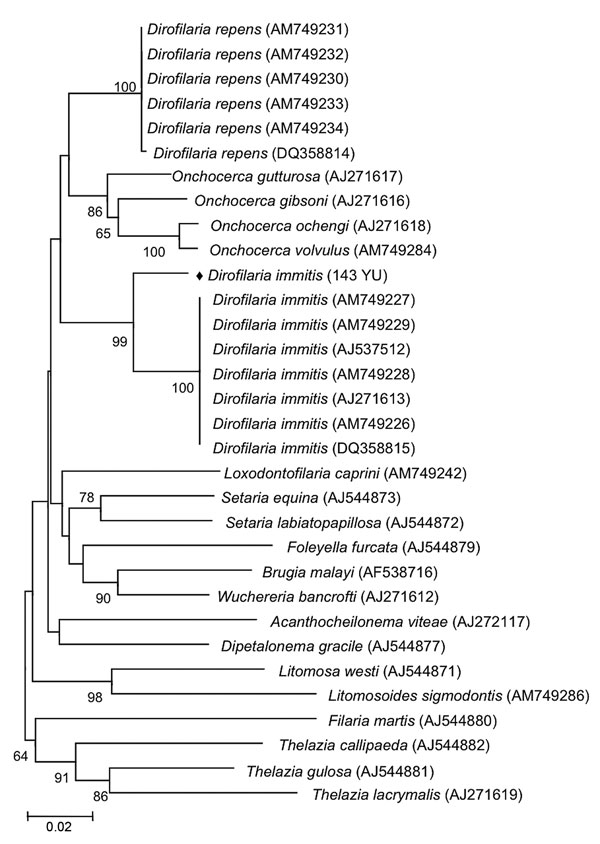Volume 17, Number 5—May 2011
Dispatch
Human Intraocular Filariasis Caused by Dirofilaria sp. Nematode, Brazil
Figure 2

Figure 2. Phylogeny of filarial nematodes based on cytochrome c oxidase subunit 1 (cox1) gene sequences. Thelazia spp. species were used as outgroup. Bootstrap confidence values (100 replicates) are shown at the nodes only for values >50%. Solid diamond indicates nematode isolated in this study. Numbers in parentheses are GenBank accession numbers. Scale bar indicates nucleotide substitutions per site.
Page created: August 02, 2011
Page updated: August 02, 2011
Page reviewed: August 02, 2011
The conclusions, findings, and opinions expressed by authors contributing to this journal do not necessarily reflect the official position of the U.S. Department of Health and Human Services, the Public Health Service, the Centers for Disease Control and Prevention, or the authors' affiliated institutions. Use of trade names is for identification only and does not imply endorsement by any of the groups named above.